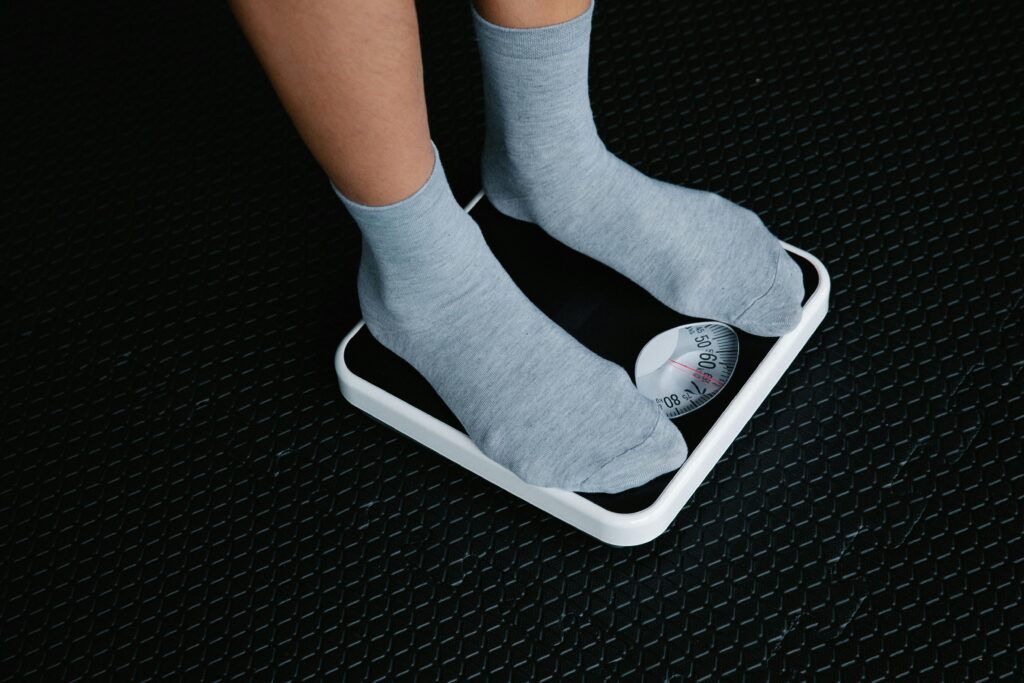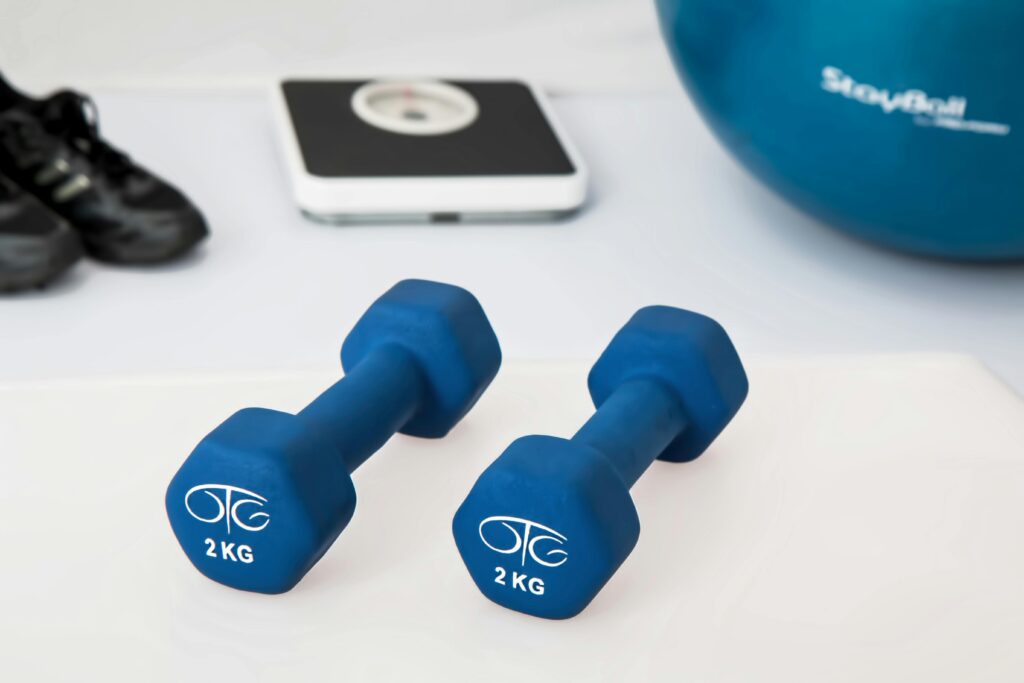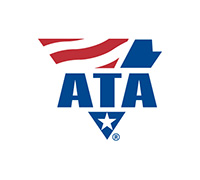Weight loss for truckers is hard. The whole world is telling you to just do five-minute lunges between meetings, stock the breakroom fridge with healthy kale snacks and Greek yogurts, or even to add kettlebells to your after-office workout routine.
It’s some serious B.S. Weight-loss advice is built for those who work a regular 9-to-5 and aren’t sitting in the driver’s seat for hours on end. While working as an OTR driver is physically restrictive and most health tips don’t really fit your job, you can lose weight and feel better.
This guide covers easy, effective ways to lose weight, and lifestyle adjustments you can make while on the road or sitting put all day. Learn about affordable treatment and real facts about success rates for different drugs and other weight-loss options.
What causes obesity?
In the simplest terms, obesity is when your body takes in more calories than it needs for its daily level of activity (NHS).
If you eat more than your body needs, the excess is stored as fat. Over time, the extra fat leads to significant weight gain and eventually obesity.
Diet is one factor we’ll explore along with others.
Diet and caloric intake
Managing a healthy diet for truck drivers isn’t easy. High-calorie foods, especially those high in fat and sugar, are everywhere. Especially when your options are mainly fast food and gas stations.
It’s easy to hit or go over your daily calorie limit with a single large meal. For example, a fast food burger, fries, and milkshake can add up to 1,500 calories, which is nearly an entire day’s worth of calories for a person trying to lose weight.
Lack of physical activity

When you don’t have an active job, it’s hard to burn off the calories. Doctors and fitness experts recommend at least 150 minutes of moderate cardio activity per week, such as walking or cycling, to maintain a healthy weight (CDC).
But for sedentary jobs, it’s a challenge. Especially when your job is to stay seated and not move for hours at a time.
Genetics and medical conditions
In some cases, genetics play a role in how your body stores fat or how quickly your metabolism burns calories. Some rare genetic conditions, such as Prader-Willi syndrome (PWS) or Cushing’s syndrome can lead to weight gain or make it more difficult to lose excess pounds (Mayo Clinic). But for most people, it’s the combination of diet and lifestyle that leads to obesity.
Easy and effective ways to lose weight as a trucker
Slow and steady wins the race
Although it is tempting to try to drop pounds fast, research shows that slower weight loss is better.
Aiming to lose 1-2 pounds per week is the healthiest route (CDC). Faster weight loss can lead to muscle and water loss rather than fat loss, and may slow down your metabolism, making it even harder to shed pounds later on.
People who lose weight gradually are more likely to keep it off for the long term compared to those who follow crash diets (Healthline).
Portion control and small adjustments
Calorie counting and extreme dieting are common, but simple portion control can have just as big of an impact—and without the stress of dieting. Cutting back on sugary foods, downsizing meals, and opting for lean proteins and fiber-rich foods can help weight loss.
One study found that reducing portion sizes by just 10-20% can lead to sustainable weight loss of around 1-2 pounds per week (U.S. News & World Report).
Fuel for your metabolism
You need to eat to lose weight, filling your body with healthy foods to keep you energized. Starving yourself makes you more likely to overeat, overdoing it on unhealthy food.
Eating the right nutrients is essential. Protein helps maintain muscle mass, and fiber keeps you full longer. Meanwhile, healthy fats like nuts, seeds, and avocados can prevent overeating.
Stat to consider: Diets rich in protein can increase metabolism by 15-30%, making it easier to burn calories even at rest (UnityPoint Health).
Start shedding pounds and feeling better today
If you’re ready to take charge of your health, Trucker’s Body Shop can help. We know you don’t have time to mess around in waiting rooms, waiting to talk to the doctor about being heavy.
So, we’ve made it easy, discreet, and affordable for you to get the help you need without ever having to leave your cab.
Here’s how it works:
- Quick, private consultation: Connect with a doctor through a simple online e-health visit. No need to drive to a clinic—just a few clicks and you’re set. Most drivers can get a same-day or next-day appointment.
- Personalized treatment plan: After your e-visit, get a personalized treatment plan tailored to your needs. Whether it’s Ozempic, Wegovy, or something else altogether, we connect you with affordable treatments that really work (Northwest Compounders, Healthline).
- Medications delivered to your doorstep or truck: Any prescribed medication is shipped directly to you—fast. Most orders are delivered within 48 hours.

Weight loss options that work
Not everyone can lose weight with just diet and exercise alone. That’s where medical weight-loss treatments come in.
Here’s a breakdown of the most effective options.
1. GLP-1 receptor agonists (Ozempic, Wegovy, Mounjaro)
- How it works: These injectable drugs work by mimicking the GLP-1 hormone (a hormone the stomach releases naturally after eating), which can suppress appetite and slow down digestion (Mayo Clinic). Studies show that patients on Mounjaro lose up to 21% of their body weight, while those on Ozempic and Wegovy typically lose 12-15% of their body weight (UCSF).
- Pros: Effective for substantial weight loss, helps regulate blood sugar, and reduces appetite.
- Cons: Expensive without insurance (around $1,000/month). Common side effects include nausea, fatigue, and digestive issues. Insurance often only covers these drugs for diabetes management, not weight loss (OMA).
2. Metformin
- How it works: Originally used to treat Type 2 diabetes, metformin is a more affordable option that can also aid in modest weight loss, typically 5-7% of total body weight (Cleveland Clinic).
- Pros: Inexpensive, widely available, and helps improve insulin sensitivity.
- Cons: Less effective for significant weight loss than other drugs and may cause upset stomach.
3. Phentermine-topiramate (Qsymia)
- How it works: Phentermine suppresses appetite, while topiramate is used to treat seizures and migraines. Combined, they help users lose an average of 10% of their body weight (Mayo Clinic).
- Pros: Can lead to rapid weight loss through curbing hunger and cravings.
- Cons: Can increase heart rate and blood pressure and potential for misuse. Illegal for truckers to take; on the DOT’s list of banned drugs.
4. Liraglutide (Saxenda)
- How it works: Similar to Wegovy, liraglutide is an injectable that helps with weight loss and glucose control. It leads to an average of 8-10% body weight loss (WebMD).
- Pros: Long-term weight management, also helps with diabetes control.
- Cons: Requires daily injections, and can cost around $1,600 a month without insurance (GoodRx).
5. Orlistat (Xenical/Alli)
- How it works: Orlistat blocks the absorption of fat in the intestines, helping people lose 5-10% of their body weight. It’s available over-the-counter in lower doses as Alli (WebMD).
- Pros: Available without a prescription, effective for modest weight loss.
- Cons: Can cause unpleasant side effects, including oily stools and diarrhea, and may interfere with the absorption of fat-soluble vitamins.
Beyond pills: Other methods to lose weight
While medications can be effective for some, they’re not the only option. There are other ways to lose weight that don’t require prescription drugs.
1. Exercise and strength training
Exercise is one of the most effective ways to burn calories, and strength training can be especially beneficial. Building muscle increases your resting metabolic rate, meaning you’ll burn more calories even when you’re not working out. Though it’s hard to hit the gym on the road, bodyweight exercises like squats, push-ups, and planks can be done anywhere.
- Stat to consider: People who incorporate strength training into their routine burn more calories at rest compared to those who only do cardio (NIH).

2. Meal replacement shakes
For truckers with limited access to healthy food, meal replacement shakes can be a convenient way to control calorie intake. These shakes are designed to provide the nutrients you need while keeping you full and satisfied. Just be sure to choose a brand low in sugar and high in protein and fiber.
- Pros: Convenient, easy to take on the go, and helps control calorie intake.
- Cons: Can be expensive, and not a sustainable long-term solution (UNMC).
3. Intermittent fasting
Intermittent fasting is another method to consider. This approach involves eating only during a specific window of time each day (for example, an 8-hour window) and fasting for the remaining hours. It can help reduce calorie intake without requiring major changes to your diet.
- Stat to consider: Studies show intermittent fasting can lead to a weight loss of 3-8% (UIC).
- Pros: Simple to follow, no need to count calories.
- Cons: Not suitable for everyone, especially those with certain medical conditions like diabetes.
4. Surgical weight loss options
For people who struggle to lose weight through diet, exercise, or medication, bariatric surgery may be an option. Different types of weight-loss surgery work by restricting the amount of food the stomach can hold or by changing how your body absorbs nutrients. Common procedures include gastric bypass, sleeve gastrectomy, and adjustable gastric bands.
- Stat to consider: Patients undergoing bariatric surgery often lose 50-70% of their excess body weight within 1-2 years (NIH).
- Pros: Significant and rapid weight loss, improved health outcomes (e.g., better control of diabetes and reduced risk of heart disease).
- Cons: Expensive, may not be covered by insurance. Requires lifelong changes in diet and lifestyle, and carries risks of complications (Mayo Clinic, 2023). Additionally, 76% of sleeve gastrectomy patients have shown significant weight gain within six years (NIH) and 50% of patients experience significant weight gain within 24 months of gastric bypass surgery (NIH).
What are the best diet plans for weight loss?
For those with a sedentary job like truckers, the key to weight loss is balancing calorie intake with nutrients that support muscle mass and overall health. Here are a few diet plan options that focus on lasting weight loss and better health.
- High-protein, balanced carb diet
A diet high in protein is essential for men aiming to lose weight while maintaining muscle. Protein helps you feel full and boosts metabolism, making it easier to sustain energy throughout the day. Aim for about 1g of protein per pound of your target body weight (UnityPoint Health, Cleveland Health Clinic). Protein-rich foods like lean meats, eggs, and beans can be the foundation of meals, while slow-burning carbs like oats and sweet potatoes provide steady energy. - Low-carb, high-fat (keto) diet
The ketogenic diet limits carb intake and increases fat consumption, encouraging your body to burn fat for fuel. This can be effective for men who need to lose weight quickly but still need the energy for physical activity. However, it’s important to balance the diet with healthy fats like avocados, nuts, and olive oil, and avoid processed meats. - Meal prep-based diet
Prepping meals ahead of time allows for better portion control and helps avoid unhealthy food choices while on the road. Simple meal ideas like grilled chicken, rice, and veggies provide the necessary protein, carbs, and fats to keep energy up without unnecessary calories. This approach helps build a routine and reduces the temptation of unhealthy snacks.
Men’s Health suggests these are the best men diet plans for weight loss, but they are effective for women too (Men’s Health). Each of these diets focuses on lowering calorie intake while eating nutritious food to keep energy levels high. And these plans aren’t rigid; most can be tweaked to fit your unique schedule or dietary needs.
We recommend consulting a healthcare provider to make sure the diet plan meets your specific health conditions and medical needs.
How to lose weight when you sit all day
If you have a job that requires sitting for long hours, such as trucking, losing weight can seem impossible, but it’s not.
Most advice out there caters to desk workers who can sneak in a workout or put a salad in the office fridge, but truckers don’t have that luxury. Here are some practical strategies to help you lose weight without needing to move around constantly.
Stay hydrated
Hydration is key for weight loss and overall health. Drinking plenty of water can help reduce hunger and prevent overeating. Often, we mistake thirst for hunger, leading to unnecessary snacking. Keep a large water bottle in your cab and sip throughout the day to stay hydrated (NIH).
Eat mindfully
Truckers often face limited food options on the road, but that doesn’t mean you’re stuck with fast food or processed snacks. Be mindful of what you are eating by planning your meals ahead of time and choosing healthier options when possible. For example, opt for grilled meats over fried ones, and snack on fruits or nuts instead of chips or candy.
Stretch and move during breaks
Even though you’re sitting for long periods, there are still ways to add movement to your routine. When you stop for breaks, take a few minutes to walk around, stretch, or do simple squats and push-ups. These short bursts of activity can help get your blood flowing and boost metabolism.
Control your portions
Portion control is especially important when you have a sitting job. Many truckers rely on takeout or fast food, which often comes in oversized portions. By eating smaller portions and avoiding the urge to clean your plate, you can cut down on calorie intake without feeling deprived.

Affordable ways to get prescription drug treatment
If you can’t afford weight-loss medications like Ozempic and Wegovy, there are ways to make these drugs more affordable.
- Novo Nordisk Patient Assistance Program: This program offers significant discounts to eligible individuals, covering the cost of Ozempic (NovoCare).
- Prescription discount programs: Many pharmacies offer discount cards or coupons, which can shave off $50 or more from your prescription cost.
- Affordable monthly plans: Many e-health wellness sites like Trucker’s Body Shop offer monthly affordable subscriptions for weight-loss drugs starting at around $175 a month.
Bottom line
Weight loss for truck drivers doesn’t have to feel like a distant dream. With long hours on the road, limited access to fresh food, and few opportunities for exercise, the journey can seem tough—but it’s still very possible. By focusing on gradual, sustainable changes, leveraging affordable treatment options, and using simple strategies like hydration and mini-workouts, truckers can shed pounds and keep them off.
Take the first step by discussing your options with a healthcare provider. And remember, small, consistent changes can lead to big results.
Frequently asked questions
How much weight can I lose on Ozempic?
Most people can lose 12-15% of their total body weight according to 2023 medical research (UCSF). For a 300-pound person, that would be 36 to 45 pounds.
The latest findings from Columbia Surgery are even more promising. The center has found that patients who use Ozempic and similar drugs lose an average of 15-20% of their total body weight, which would be up to 60 pounds for a 300-pound person (Columbia Surgery).
How much weight can I lose with semaglutide?
According to UCLA and Columbia, patients can lose 15-20% of their total body weight using semaglutide (UCLA, Columbia Surgery). For a 300-pound patient, that’s 45 to 60 pounds.
Semaglutide is the active ingredient in drugs like Ozempic and Wegovy (UCLA).
What is tirzepatide?
Tirzepatide is a medication used to treat Type 2 diabetes and help with weight loss in people who are obese. It works by helping control blood sugar levels when combined with a healthy diet and exercise.
It helps your body manage blood sugar and weight by activating two key systems, GIP and GLP-1, that signal your body to release more insulin after you eat. This lowers your blood sugar.
For weight loss, tirzepatide reduces appetite, making it easier to lose weight and keep it off. It’s only available by prescription and comes in the form of an injection. Tirzepatide is sold as Mounjaro or Zepbound (Mayo Clinic).
What is the best protein powder for women for weight loss?
For women looking to lose weight and who have a sedentary lifestyle like trucking, the Orgain Organic Simple Vegan Protein Powder may be a great option. Dieticians gave this powder excellent marks in a review article on Glamour, noting it is low-calorie, plant-based, allergen-friendly, and high in protein. This helps you feel full longer and reduces the urge to snack (Glamour).
What’s the best weight loss diet for truckers with 100 pounds to lose?
For long-term success in losing and keeping off 100 pounds, experts recommend drinking lots of water, paying attention to the sugar content in food (not just calories), eating lots of low-carb vegetables, including strength training in your workouts, and making sure to get enough magnesium.
Foods high in magnesium include tomatoes, nuts, and seeds. This mineral helps maintain the healthy function of nerves, heart, muscles, bones, and your immune system. Having optimal levels of magnesium in your system can help you manage (fight off) cravings for chocolate and sugar.
Make sure to talk to a doctor before taking magnesium supplements as it can cause problems for those with kidney issues (Today).
What’s the best protein powder for weight loss and working out?
There’s not one single protein powder for weight loss that is going to work for every person, but some solid options that the dieticians at Men’s Journal like include Sports Research Whey Protein, Jacked Factory Iso, and Transparent Labs 100% Grass-Fed Whey (Men’s Journal).
Do vitamins help with weight loss?
The short answer is no. According to doctors and researchers at WebMD, many vitamins and supplements claim to help with weight loss, but there is no solid proof.
Vitamin companies often claim green tea extract, CLA, and chromium picolinate can reduce appetite and boost metabolism, but studies show mixed results. And in some instances, supplements can cause an upset stomach or increased risk for diabetes.
Make sure to talk to a doctor before you begin using any supplements. Just because it’s sold over-the-counter (OTC) doesn’t mean it’s safe (WebMD).












